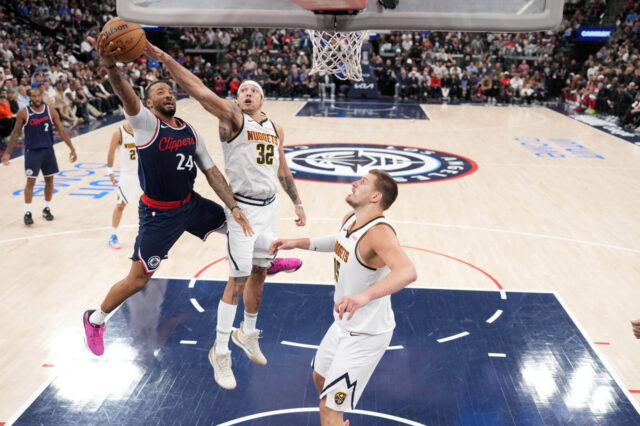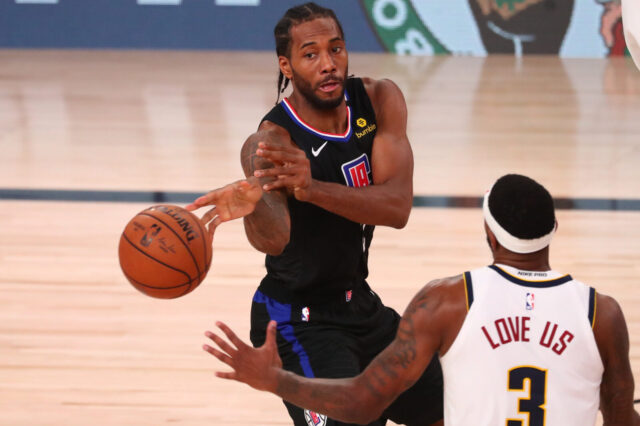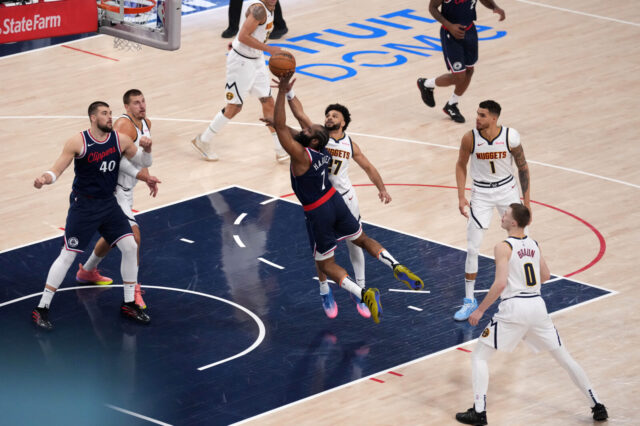Let's get the cheap and tawdry part out of the way, shall we? For a day job, I work in an industry that, amongst many other things, has designs upon your online desires. Not like that. Our desire is to pique your interest, get you to click on a headline and tease you into a page. So… If you're new here, and/or didn't expect this to be about sports or basketball, you may want to make a sharp electronic U-turn… Though if you clicked on that headline/picture combo for another reason, I'd only encourage you to stay safe out there online. Everyone else, into the breach, so to speak.
It's true, though. I do play with myself. Just not in the way you were thinking. Well, also in the way you were thinking, but we won't be discussing that today. More in the way of games, and how I prefer to play them alone. I believe that every human being engages in self-competition of some sort, though I don't have the data to prove it. This little ditty is about how self-competition has impacted me, and the ways in which the best of the best use it as a tool to improve themselves via the only means they have left.
Sadly, I do not engage in self-competition for reasons so as inspiring as the gents who inhabit the rest of this article, as my preference is borne out of years of playing sports and often seeing a side of others I'd rather not see, and finding a lot more fun in playing games in which you are only trying to improve against yourself. That didn't stop me from playing a decade-plus of competitive soccer at a high level, a game I always played best when being a bit of a jerk myself. When I finally concluded my coaches had realized the same formula, and were pushing my buttons in the interest of better performance, I decided it was time to stop.
To this day, I still prefer games and contests that are solo, whether physical, mental, electronic, or all of the above. I find the challenge of self-improvement a much more inspiring motivator than besting the guy across from me, and am also able to avoid the "joys" of occasionally seeing a sore winner or loser across the aisle. Ah, introversion.
Happily, there are professional athletes who find much better advantage in self-competition, and one need not look too far from the current “center” of the NBA universe for an exceptional example. Stephen Curry, last season’s MVP and current fan darling, enjoyed a career season last year on his way to a well-deserved award and title to match. Amazingly, Curry could easily be qualifying for back-to-back MVP honors and Most-Improved Player this year, if the voters were inclined to look at him for the latter.
While Most Improved will (blessedly) not be a part of Curry's haul at season's end, it's still staggering that he could qualify based on his play. Curry's PER has seen an amazingly consistent rise over his career, save one flat outlier. Here's the upshot of his ascension over seven seasons:
| Season | PER |
| 09-10 | 16.3 |
| 10-11 | 19.4 |
| 11-12 | 21.2 |
| 12-13 | 21.3 |
| 13-14 | 24.1 |
| 14-15 | 28.0 |
| 15-16 | 32.0 |
Save the momentary plateau from 2011-2012 to 2012-2013, Curry has repeatedly improved his play year after year to the point that he has nearly doubled his PER in 465 career games. 465 games, and thousands upon thousands of hours of practice, repetition, and a thirst for continuous improvement. By the way, that 32.0 he's currently running at would top the PER-adjusted stat on Basketball Reference's list. Not this year, folks. All time.
As tired as I am of articles about him, I'd be missing a shiny data example of the principle discussed to leave him out due to overuse. I'm simply calling out the fact that Curry is currently playing at a level where there's only him to challenge himself from here on for a while. He literally has to play with himself.
Here's a video that details Steph's meticulous habits, which were practiced well before you'd heard of him:
Another prime example of someone you thought already at the top of their game, but who always sought another level is his Airness, Michael Jordan. Though PER does not tell the same tale of year-over-year growth in Mike's game (his best season for PER was less than six points above his rookie season), MJ was notorious for adding something new to his repertoire in every off season, eventually leading the league for a season or more in areas like free throw percentage and adding such defensive prowess as to become the Defensive Player of the Year. Amazing growth from an already-great player, one who could have easily rested on his laurels with the skills he'd been blessed with.
Jordan’s competitive fire was second to none, and when he had no one left to compete with, he simply decided to compete with the previous version of himself, bettering himself each year through 13 seasons and six championships with the Chicago Bulls. That same dedication and work ethic allowed Jordan to make a comeback with the Washington Wizards for two seasons. Though he was obviously diminished in his physical abilities, the amount of time he had dedicated to improving himself over all those seasons allowed him to return and thankfully not embarrass himself.
Most of the players who enjoyed a season or more of being the league's very best had to find motivators to take themselves to new levels when no one else could match what they were doing in the moment, be it LeBron James or Magic Johnson, Kareem Abdul-Jabbar or Tim Duncan. The list of players who were at their apogee in the league, and who pushed themselves further is a who's who of basketball lore.
Turning that spotlight home to our Denver Nuggets, there have been a number of players over the years that have reached a level in their games that required them to improve of their own accord, as they were doing things that far surpassed the teammates who could give them competition. Though Denver has rarely had a dog in the fight for "best player in the game" during their history, many players have improved themselves after most people thought they had reached an apex after some fashion. Here are a few examples:
After David Thompson's first two seasons in the league, several national pundits were calling the Skywalker the future of the game, with talents to spare. Prior to his tragic downfall, his third season took his game to new levels, with nearly 2,200 points scored and a 52% field goal percentage. Thompson had found another gear in that 1977-1978 season, nearly capturing the scoring title. Again, his improvement was incremental, but the level to which he took his game and athleticism for that season inspired no less than MJ.
Dikembe Mutombo joined the Nuggets “fully grown” and with a man’s game to match. Deke altered the space in the paint from the moment he stepped onto the court for Denver, and had nothing to prove to make a long and successful career out of his NBA stay. By his third season, Mutombo led the NBA in blocks, and by his fourth year, he led in rebounds as well. Deke would lead the league in the former four more times, and the latter another three. He pushed himself to be more, even when what he was was already far outshining those around him.
Dialing it in to your modern-day Denver Nuggets, Danilo Gallinari has taken it upon himself to find a new level in his game, even though he acknowledges he’s lost a bit of speed and spring due to injury from a couple seasons back. As the best player on a slowly improving team, Gallo knew a lot of the responsibility for this season’s success would fall upon his shoulders, and he’s responded with the best statistical season of his career, raising his current PER (19.9) over three points above his previous career high. Astoundingly, that’s a feat Curry has now managed three times. Nearly four.
Though Gallo is not the best player in the NBA, he's at the top of the current Nuggets depth chart, and has taken the time and effort to make himself more than he was by sheer force of will and self-improvement. His commitment to improving his game serves as an example of his desire and will to always be better. It will also serve as a great example to the bevy of talented young players the Nuggets currently enjoy.
At the end of the day, this notion is a fickle one at best, as many of the examples cited above do not all fit into the same advanced stats to show their commitment to growth and improvement well after anyone but themselves was demanding it. Even more arbitrary are many of the names left off of this list, NBA and Nuggets stars alike, who had levels of greatness in them they never achieved due to a lack of desire or motivation.
In addition, there are innumerable middle-tier players who will never be their team's best, let alone All Stars, but have the work ethic and dedication to still transform themselves into the best version of themselves they can be, and are no less impressive in terms of the dedication required to move themselves to whatever level constitutes their apex.
The common factor for these players and so many others is simply a drive and desire to maximize their own skills and talents, not because anyone else is asking them to, but because they want it for themselves. Themselves, and the benefits that can come with well-realized talent. Motivated to self-competition, wanting to be something more. Something greater.
How about you, Nuggets Nation? Do you play with yourself, and how? I know that I do, and am trying to get better at it every day.
This content is no longer available.


